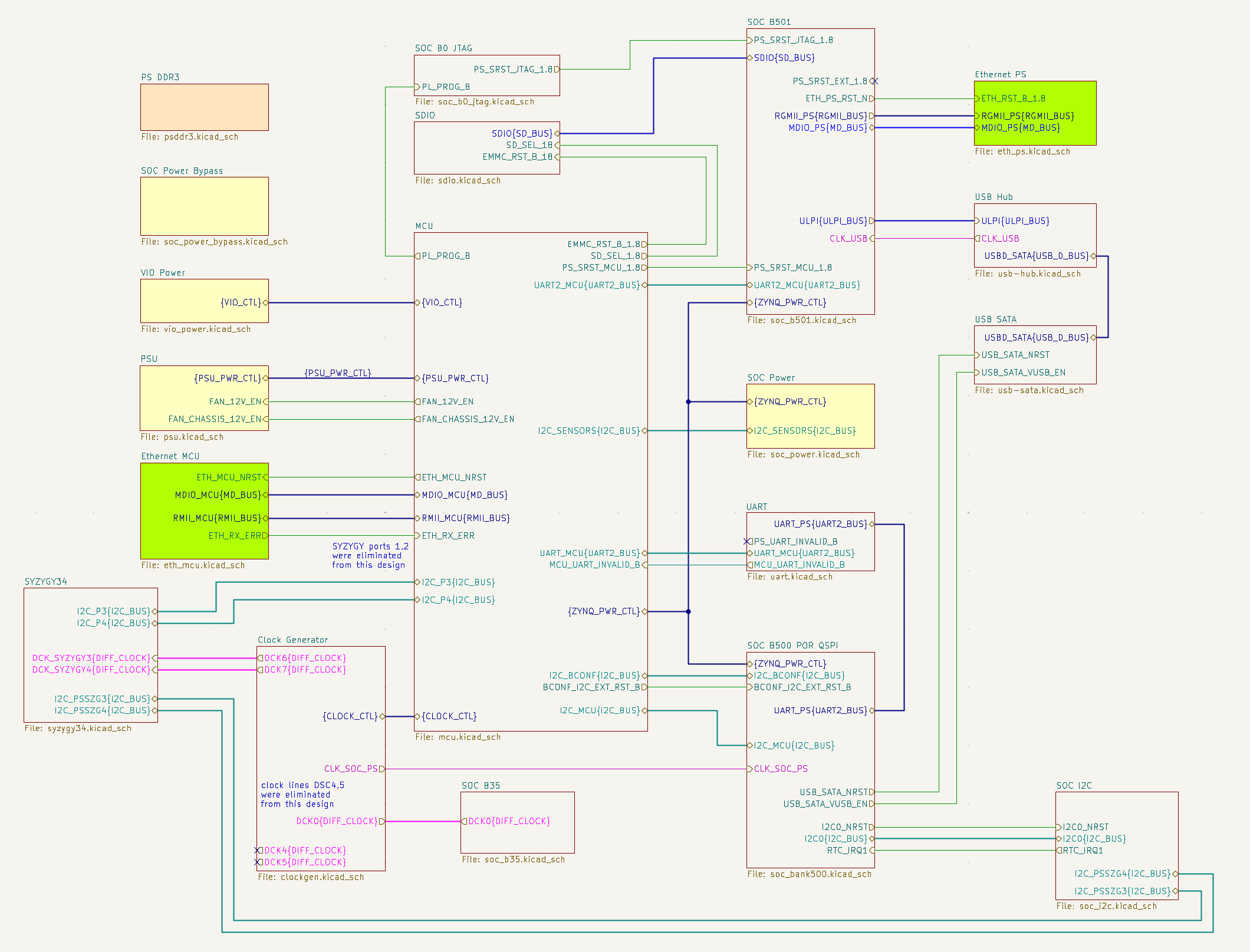NASR-M clock generator preliminary config
The heart of the NASR-M carrier boards is the LMK03328 clock generator. It's an ultra-low noise and high-performance clock generator with two PLLs and eight outputs. The outputs can be set to single-ended or differential with an adjustable voltage level. The chip can switch between two reference inputs and is configured with I2C. In my case, the main reference input is the onboard TCXO, and the secondary is an external reference.
Interactive HTML BOM plugin for KiCad
Those of you who have assembled a complex board manually know how much time it takes to prepare components and cross-check them against BOM lists while soldering chips onto the board. Usually, I prepare a few paper lists for that purpose and cross out soldered components one by one. However, it’s not as fast as you may think. My silkscreen designators aren’t perfect, so I still occasionally have to check the schema to continue. Today, I was looking for a better way to generate the BOM for assembly and found “Interactive HTML BOM plugin for KiCad”.
Syncthing
I am thoroughly amazed by Syncthing. Before that, I had used other options to synchronize files across my desktop machines, but Syncthing beats them all in terms of configuration simplicity and ease of use.
X-Ray BGA inspection photos
Ever wondered what BGA X-Ray inspection reports look like? Here is a sample from JLCPCB. It cost me around $2. Photos are under the cut.
NASR-M first prototype production
Yesterday, I sent the initial NASR-M prototype for production to JLCPCB. Hoping there will be no obvious blockers and I'll be able to bootstrap Linux with no re-spins. I want to bring the board up circuit by circuit to know precisely what works and what doesn't.
Goot RX-802AS soldering station
I've got a new soldering station - Goot RX-802AS. It might not have the best thermal recovery, especially compared to much more expensive temperature-controlled stations, but it's one of the leaders in its price class, and has its own perks.
howto bypass the corporate firewall
This article provides a brief guide on circumventing the corporate firewall using an SSL tunnel. Why bother? Sometimes it blocks legitimate resources I need to access, and it is slow. Requesting a whitelist for each domain individually is time-consuming, so I decided to explore alternative methods. Most corporate firewalls are designed to be cost-effective, not maximally efficient. To bypass the restrictions, we could use a simple SSH tunnel wrapped inside the HTTPS session to the Internet server. Why do we use SSH inside the SSL tunnel? Some corporate firewalls perform man-in-the-middle attack by providing custom certificates installed on company computers, so that browsers would not complain about an untrusted certificate in the chain. Correctly configured SSH with public key authentication is used to mitigate the man-in-the-middle on the corporate side.
NASR-M SYZYGY carrier board
NASR-M
Some time ago, I decided to try Xilinx Zynq, which everyone is using in their RF projects. And what is a better option for exploring a new chip than making a board around it? Spending some money on a reference design devkit from the manufacturer? No, that's certainly not my way of learning things.
My dream board had 1GB of 32-bit-wide DDR3 RAM, SYZYGY ports, a standard ATX power supply, 1Gb ethernet port, and remote management that would allow me to flash firmware, control the system remotely, and export temperature and power usage readings to let me debug comfortably. Since that's my first rather complex embedded board in KiCad, I have made some dubious choices with PCB stackup, component placement, and routing. Sounds counterintuitive, but that was already a great learning experience in how not to do things and which design choices to avoid. It may work, however. I am pretty concerned about the DDR3 part, which was the most challenging part to route.
But if it works, I would have an excellent opportunity to play with software radio on a different level. And by different level, I mean a system built from scratch. Long story short, it's on a GitHub, completely open "with open-source everything". Once the board boots up, I will publish the Vivado design and the board MCU firmware sources. This will take some time, though. Once I'm more confident in design, I'll order PCBs from JLCPCB, and it will take even more time to solder the components in circuit by circuit, starting with the MCU, then the secondary PSU, and the rest. Scroll down into the long list of things that could break if you are interested in this rather dramatic development.
Design is made with KiCad 9. Below is a high-level overview of fundamental blocks.
